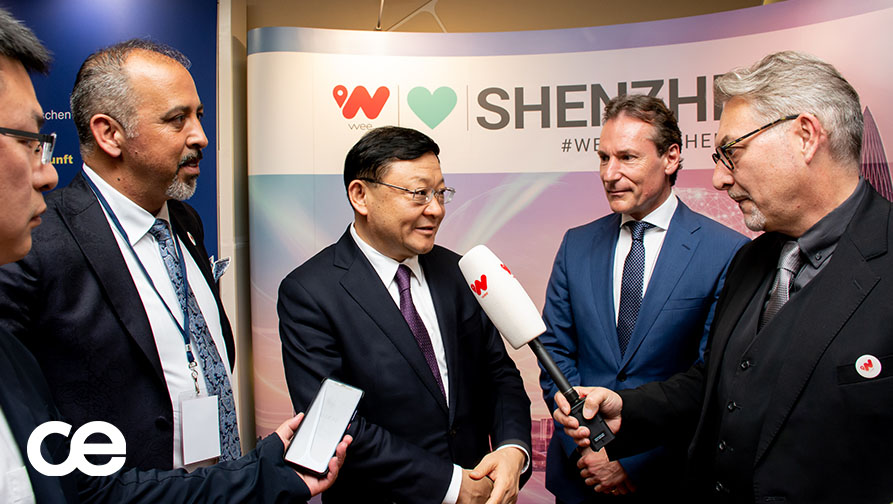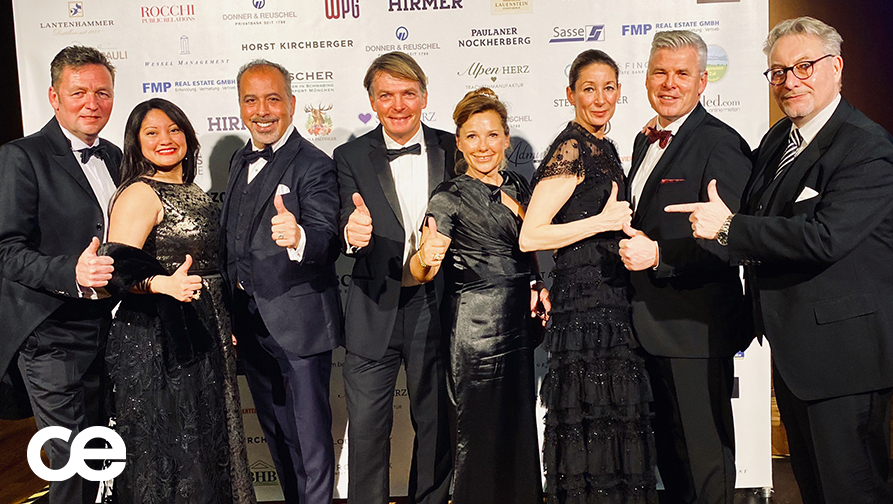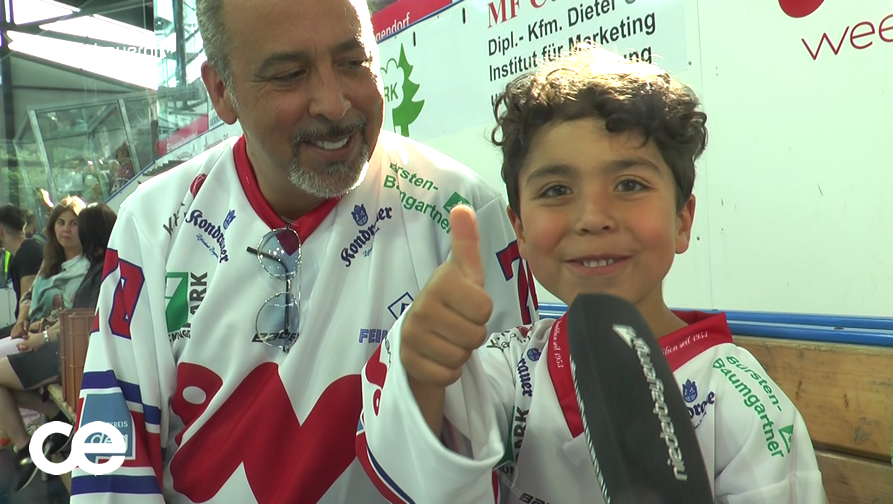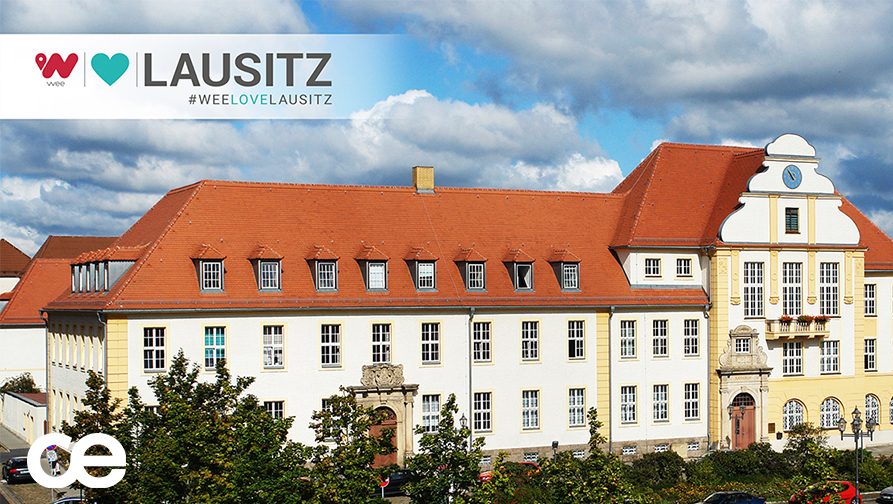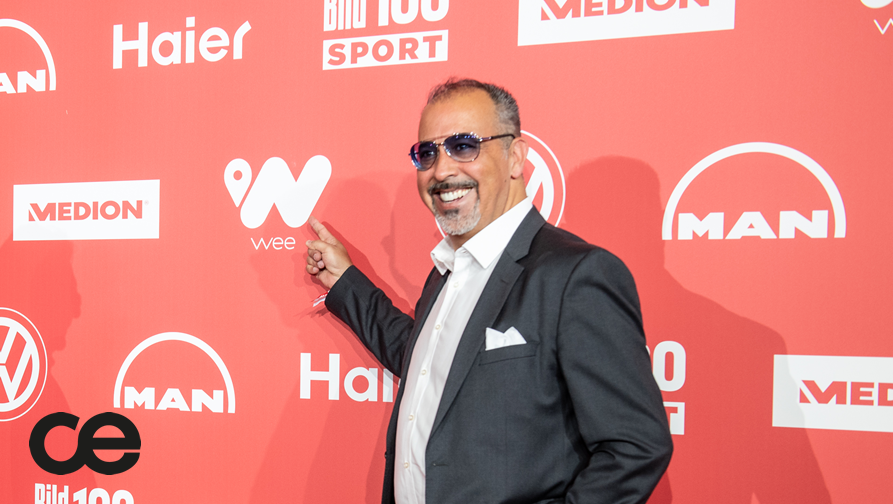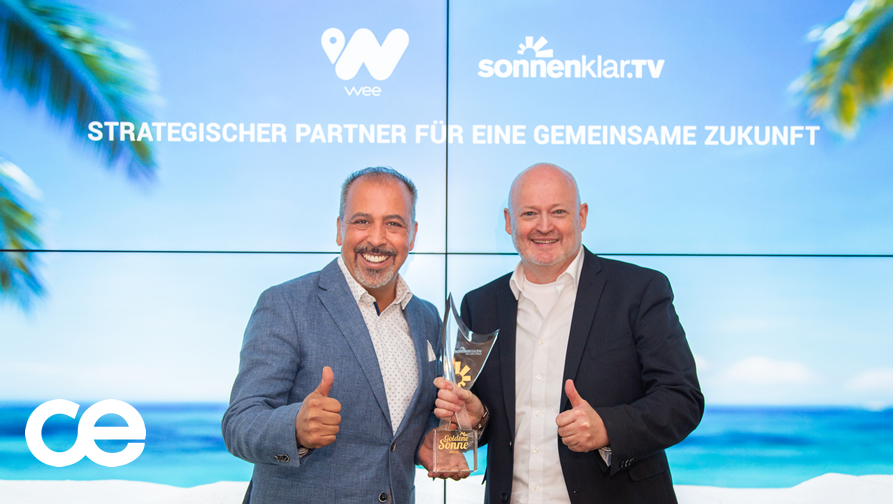Boomtown Shenzhen swears by “Made in Germany” with m-business from Schwabing
The ratification of a preliminary contract for the extended digitalisation of Shenzhen, one of the most rapidly growing cities worldwide, can be seen as a seal of approval for the Munich high-tech enterprise “wee” on more than just an emotional level. Wang Weizhong, the highest-ranking politician of the government of Shenzhen (Secretary of Shenzhen Municipal Committee of the Communist Party of China), the pulsing metropolis with 13 million inhabitants, and Cengiz Ehliz, visionary and founder of “wee”, have now taken a visible step in the economic and technological collaboration between China and Germany, with the market entry of “wee” in this special economic zone of Guangdong Province, planned as a public-private partnership! The innovative loyalty programme is unparalleled anywhere in the world – with its weeApp, which uses its integrated search machine to give visibility to stationary retail trade just as much as online shops, in expert circles it is considered Bavaria’s answer to the global blue chip Amazon.
The majority of the contracts that were concluded this past Wednesday by representatives of German companies such as Siemens, Lufthansa or Occhio with the municipal government of Shenzhen involve investments of billions of euros made by Germany in the Chinese epicentre of smart cities and Fintec. With the company’s own agreement, based on the business plan of wee Marketplace AG, investments from China will flow into the successful implementation of the “wee” business model on location. This strategy is designed to ensure an exemplary market entry in Shenzhen – as a milestone for future market activities in China.
“I look forward to this huge project and to the rollout of our company and product strategy in China, where mobile payment is met with the highest acceptance worldwide”, m-commerce multi-entrepreneur Ehliz smiled, highly motivated following the successful ratification and binding handshake with Andrew Huyan, Deputy Secretary General of the Shenzhen
International Investment & Promotion Association. The incumbent Munich Entrepreneur of the Year with Turkish roots has every reason to get excited: a group of Chinese investors is already interested in the further digitalisation of the region of Shenzhen, a new pilot region for
“wee”. The aim is for the project, developed by the division weeSports & Entertainment AG, to be financed with a considerable sum of several millions and implemented as the first arena project with an open payment system in China. As the holding company of the group, Swiss Fintec Invest AG is also pleased with this plan. And what is motivating the municipal
decision-makers of Shenzhen to promote these investors for “wee” to jointly take on such a mega-project – potentially with additional millions in state funding? For starters, it is the globally unique position of the innovative loyalty programme where retailers profit from their biggest competitor, e-commerce. This can be seen throughout Europe, for example in Munich just as much as in the Allgäu region, in the Central German region of Lusatia or in the cities of Swiss Romandy, where the retail trade is currently being tapped into for “wee”. In contrast to the competition, when shopping online in over 1,400 renowned online shops at wee.com, discounts collected in the form of “wee” (in Europe, one “wee” is one euro) can only be consumed in stationary retail shops. Alternative option: the customer has the collected “wee” transferred to his own current account. This mobile payment is in conformity with the prudential requirements.
In the tranquil town of Bad Tölz, the comprehensive stress tests for the synergetic networking of the first “open” stadium payment system worldwide – the completely digitalised weeArena – with the local retail trade, which has been integrated into the “wee” infrastructure, and the ecommerce, have been concluded successfully. Specifically, this means: anyone who makes apurchase with local retailers who have joined “wee”, thus collecting up to 10% discounts per purchase, can then use their “wee” credit to pay for the entry to DEL2 games of the Tölzer Löwen, eat and drink in the Ice Temple or buy souvenirs at the fan shop without the need for cash thanks to the weeCard or weeApp, in turn collecting discounts in the form of “wee”. The unique position of the pilot project in Bad Tölz and the know-how built up here during the development and implementation of the technology and throughout the project management serves as a blueprint for the Europe-wide multiplication that has already taken place, and for
the accompanying systematic integration of 25 metropolis and rural regions by 2024.
And why is one of the most technologically innovative cities in the world relying on “wee” and on the unique stadium concept of weeSports & Entertainment? On the one hand, the goal is to motivate the heavily under-represented retail trade and to improve the quality of life of people by providing them with a growing range of offers. On the other, on its way to
becoming a major player in professional sports, China and in particular Shenzhen wants to invest billions in the construction of sports facilities in order to be able to meet the needs of the increasing number of professional sports fans. Here, the plan is for the implementation of the Bad Tölz model to play a crucial role when it comes to networked mobile payment with a cashback guarantee.
Oliver Kaiser, chairman of the advisory board of the weeSports division, is convinced the project in the “Middle Kingdom” will be a hit: “Following the successful implementation with our own technological infrastructure, beyond Shenzhen, we plan on opening up the entire province of Guangdong for “wee”, which with over 100 million inhabitants is the province with the highest population density in China.” The credo of the sports business pro with proven loyalty expertise: “In the future, we want consumers in China to make their daily purchases using the weeApp without the need for cash, and to do more than just collect cashback in the process. Beyond the monetary advantage, at the same time, we also offer the growing number of sports fans unique experiences with their idols, linking this with merchandise offers, stadium experiences and digital marketing. If, of these almost 1.4 billion Chinese citizens, just half of them are interested in sports, our business case here is looking at a prospective customer potential of over 500 million fans.”
The high-ranking Chinese delegation, which was warmly welcomed by Roland Weigert, state secretary in the Bavarian State Ministry of Economic Affairs, Energy and Technology, included a good 20 top managers from Shenzhen with a total turnover of approx. 500 billion euros from all the relevant industries, such as automotive, venture capital, aerospace, IT,
energy, banking, project development and so on.
With the Kempinski Four Seasons hotel, the organising Shenzhen International Investment & Promotion Association (SZIIPA) had chosen a befitting setting for the Chinese-German conference on economic and technical cooperation. In order to get an idea of the business environment and the economic developments on location and to contractually finalise the projects, the return visit of the German delegation in Shenzhen will take place with the eagerly anticipated participation of the “wee” management in late summer 2019.
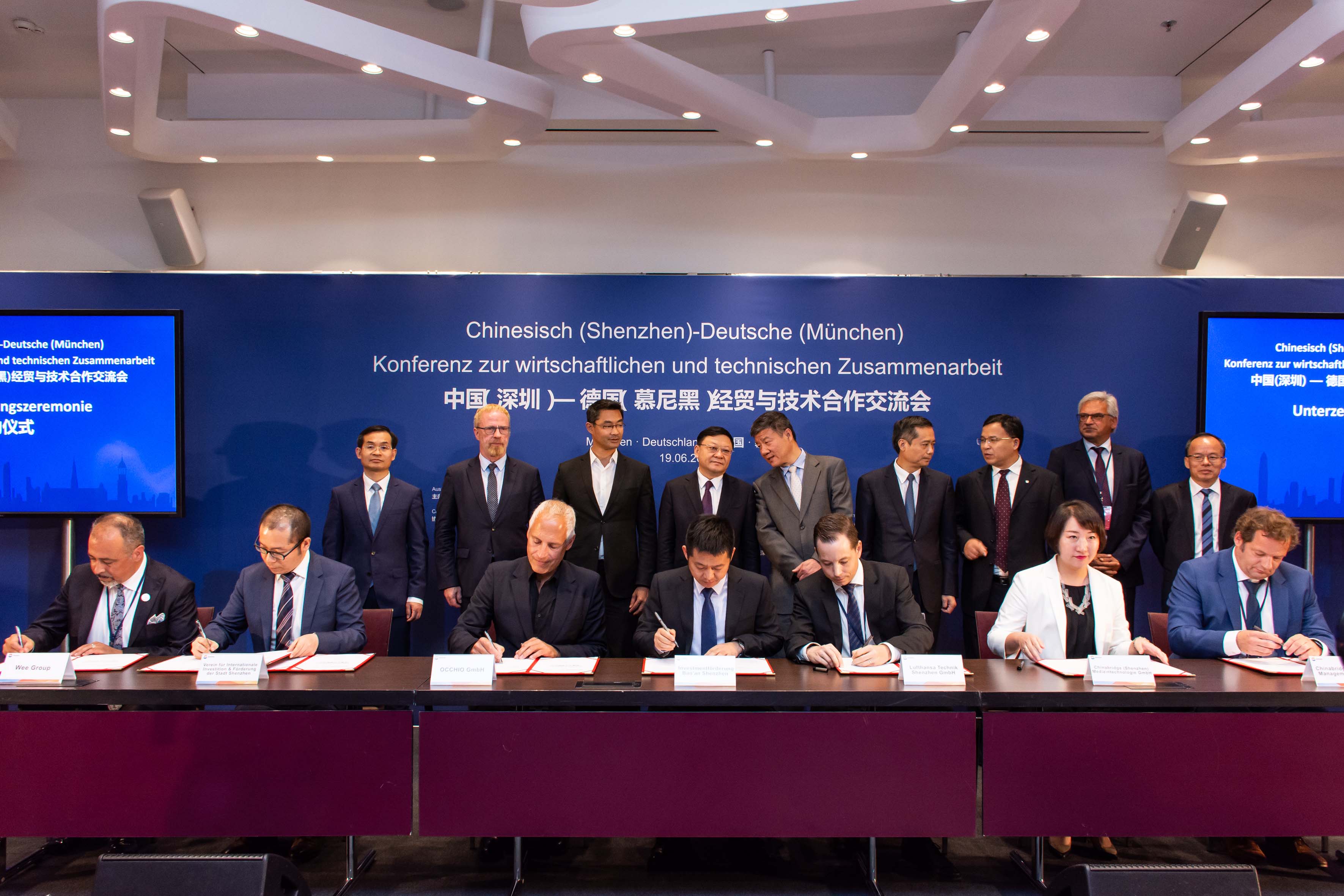
partnership between the metropolis of Shenzhen and the – for the large part Munich-based –
companies was underpinned for the future. Cengiz Ehliz (on the far left) was delighted to sign on behalf of “wee”.
Media contact:
weeMarketplace AG/weeSports & Entertainment AG/weeBusiness GmbH
Head of Corporate Communications
Media spokesman
Tilmann Meuser
c/o CP/CONSULT Consulting Services GmbH
Tel.: +49 (0) 201/890699-15; mobile: +49 (0) 177/8095117
meuser@cp-cs.de

